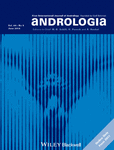Adult circumcision and male sexual health: a retrospective analysis
Summary
We aimed to evaluate possible associations of circumcision with several sexual dysfunctions and to identify predictors for the development of these outcomes post-operatively. Telephone surveys about sexual habits and dysfunctions before and after intervention were conducted post-operatively to patients that underwent circumcision in Centro Hospitalar Vila Nova de Gaia/Espinho during 2011. McNemar test was used for a matched-pairs analysis of pre- and post-operative data. Odds ratios, adjusted in a multivariate analysis, explored predictors of de novo sexual dysfunctions after circumcision. With intervention, there was an increase in frequency of erectile dysfunction (9.7% versus 25.8%, P = 0.002) and delayed orgasm (11.3% versus 48.4%, P < 0.001), and a significant symptomatic improvement in patients with pain with intercourse (50.0% versus 6.5%, P < 0.001). Significant predictors for de novo erectile dysfunction were diabetes mellitus (OR 9.81, P = 0.048) and lack of sexual desire (OR 8.76, P = 0.028). Less than three sex partners (OR 7.04, P = 0.007) and low sexual desire (OR 7.49, P = 0.029) were significant predictors for de novo delayed orgasm.




